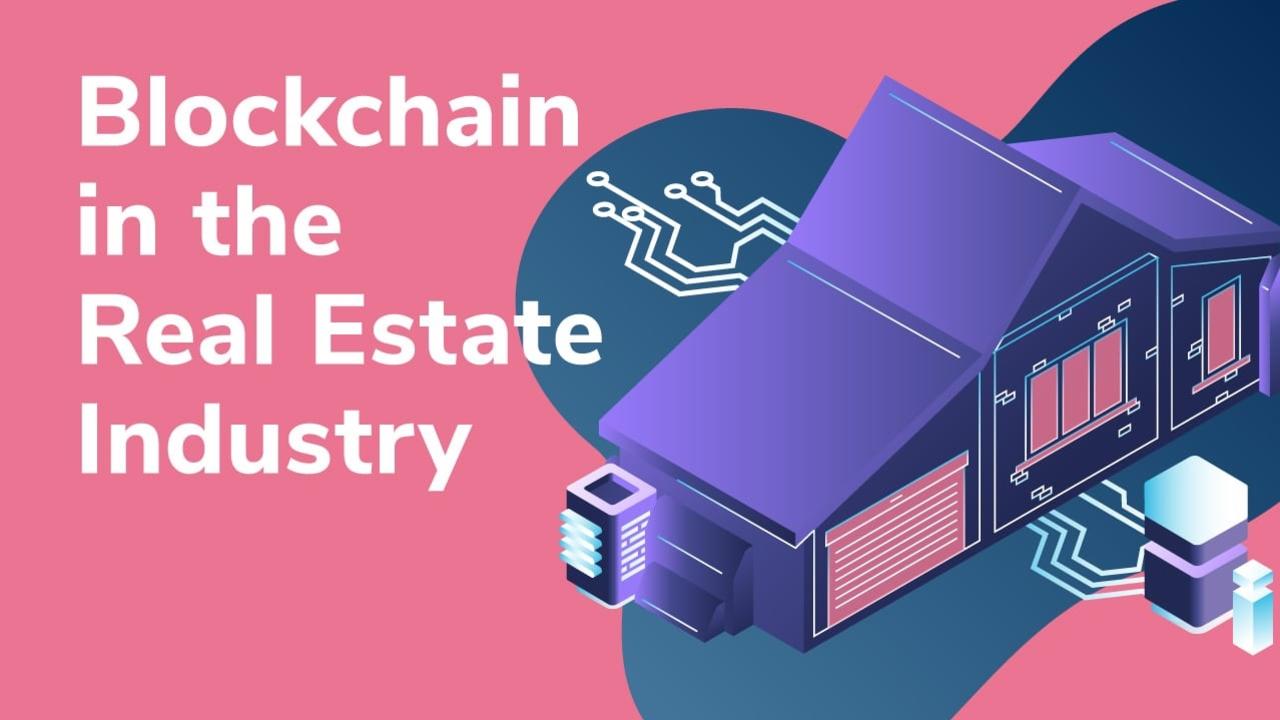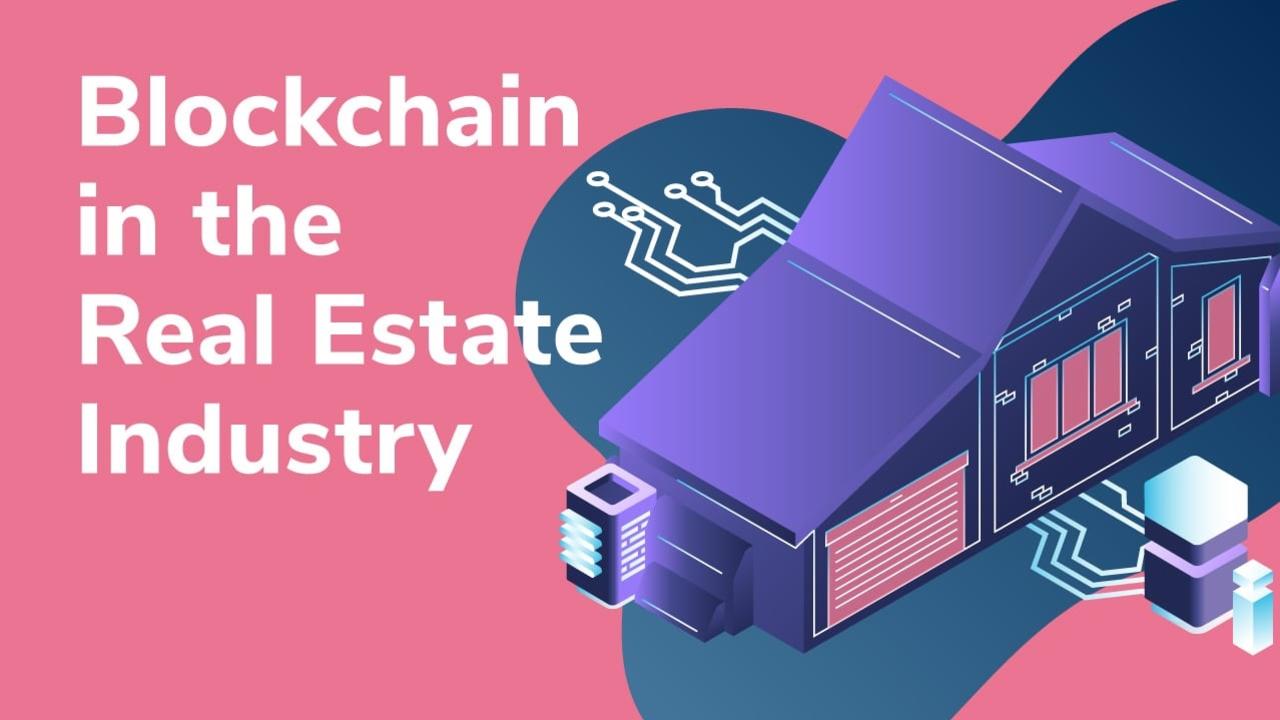
Blockchain technology is increasingly being adopted in various industries, as use cases for distributed ledger technologies and cryptocurrency continue to become more evident. One interesting area is that of blockchain technology in the real estate sector. The use of blockchain in the real estate industry can help tenants, landlords, estate agents, and even architects. Many of the legal complications and administrative hurdles associated with buying, selling, renting, or letting property can be solved by the use of blockchain technology, and the opportunities that lie ahead in this field could turn the industry on its head.
In this article, we discuss how blockchain is used in the real estate industry and some of the projects involved in making this happen. We’ll also explore some of the many benefits of blockchain-based solutions and the innovative projects working towards integrating them into the elaborate web of processes involved in property ownership. Firstly, for those who are new to the blockchain industry, we explain the basics of how blockchains operate below.
Are you interested in cryptocurrency in general, or want to take part in the blockchain revolution but don’t know how? Ivan on Tech Academy has various blockchain education courses that can help you get your crypto career started. What’s more, Ivan on Tech Academy allows you to go from zero preexisting blockchain knowledge to becoming a blockchain programming pro. What are you waiting for?

How Blockchain Technology Works
Blockchain technology is a globally distributed network of computers (nodes), running code, and smart contracts to create decentralized platforms and web3 applications, that are not controlled or run by any centralized party or governing body.
Blockchain is part of the distributed ledger technology group, whereby open-source transparent databases are stored, secured by computational science, and updated in real-time even with multiple participants.
Whenever a transaction is executed it is infinitely stored on the blockchain database, which can either be on a public blockchain, viewable to anyone, or a private blockchain where only permissioned key holders have access to the data.
Instead of transfers going through multiple holdings before reaching the specified receiver as with traditional financial systems, transactions are mathematically verified by nodes, solving complex equations requiring different pieces of transaction data to solve the puzzle. This ensures that all data entered on the blockchain becomes immutable, and cryptographically intertwined with the other transactions in the blockchain making it next to impossible to hack.
Real Estate
The process of moving to a new house is never simple, whether you’re moving out for the first time, twenty-first time, renting, or buying, there are many obligations, regulations, and logistical applications to consider. Even the most highly-organized individuals have a tough time keeping on top of the surveyors, valuers, and conveyances, plus multiple estate agents.
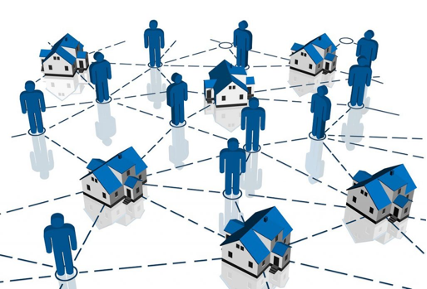
Then, there are energy certificates that need to be provided, solicitor contracts that need to be signed, maintenance contractors to be arranged, mortgage advisors, and banks to deal with. This is all just for the one party that is selling the house – the buyer of said house will often also be dealing with multiple third parties as well for their mortgage loans and legal transfers to be arranged.
As such, this long, winding, back-and-forth process of documents between parties exposes potential vulnerabilities of documents, with the possibility for human error, manipulation, damage to physical documents, or loss of digital documents over time. Also, with so many parties involved it is often difficult for parties to coordinate in a timely manner, thus creating unnecessary time-delays and inefficiency of labor due to lack of consensus.
These issues highlight how blockchain in the real estate industry can be of extreme advantage to all parties involved. The technology can be used to streamline the process of buying and selling property, simultaneously reducing administrative delays and errors when purchasing real estate.
Smart Contracts Between Tenants and Landlords
Smart contracts are pieces of code that are programmed to move money from A to B, dependent upon certain conditions being met. If you’re interested in learning more about how they work, why not see our deep-dive article on smart contracts.
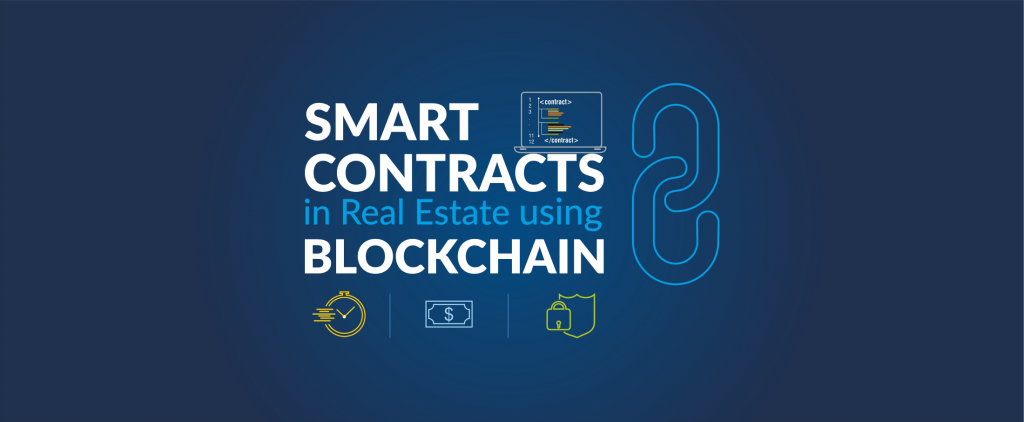
In the context of the real estate industry, the conditions could be a specific date of the month e.g. on the 1st of every month, the smart contract executes X amount of money to move from the tenant’s wallet to the landlord’s wallet address. Smart contracts are also immutable, and cannot be challenged or removed once deployed. Also, as contracts can be written for personal circumstances, certain exceptions can be written into the code. This makes guarantor payments even more secure and transparent. For example, you could program a smart contract to automatically deploy rent payment from a guarantor, if the tenant’s wallet didn’t hold sufficient funds on the last day of the month.
Smart contracts between tenants and landlords will be one of the main use cases of blockchain adoption in the real estate industry, offering increased trustless communication and business between strangers and valuable peace of mind knowing that, as long as the blockchain is running, (if you’re unsure how long that’ll be – make sure to read ‘Will Bitcoin Last Forever)’ rent or mortgage payments will be paid, and on time too. Tenancy agreements that are created using smart contracts could reduce costs for both parties by removing the time and money spent on the process of including letting and real estate agents.
Possibilities For The Real Estate Industry
On the other hand, this presents an interesting opportunity for agents to begin to integrate blockchain into their business models now, to get ahead of the curve and mainstream adoption, offering increased efficiency in property management. Businesses that are implementing blockchain will see a continued increase in usage over the years as the mass adoption of the technology is slowly preparing to take hold. Banks, real estate agents, and brokers will all see a demise as the technology replaces the need for human interaction and verification, with blockchain offering digitally verifiable identities, provenance, and scarcity.
Visit Ivan on Tech Academy to learn more about the possibilities presented by blockchain technology. Over 20,000 students have already enrolled in the Academy – join them in learning about the blockchain forefront of technology! Additionally, you can get 20% off when enrolling if you use the exclusive Ivan on Tech Academy blog promo code, BLOG20.
Tokenized Houses
Blockchain is often known for its use of cryptocurrency, fungible tokens that are all of equivalent value. In addition to this, the Ethereum blockchain has created non-fungible tokens, NFTs, that each represents an individual unique value – of just about anything. Including houses!
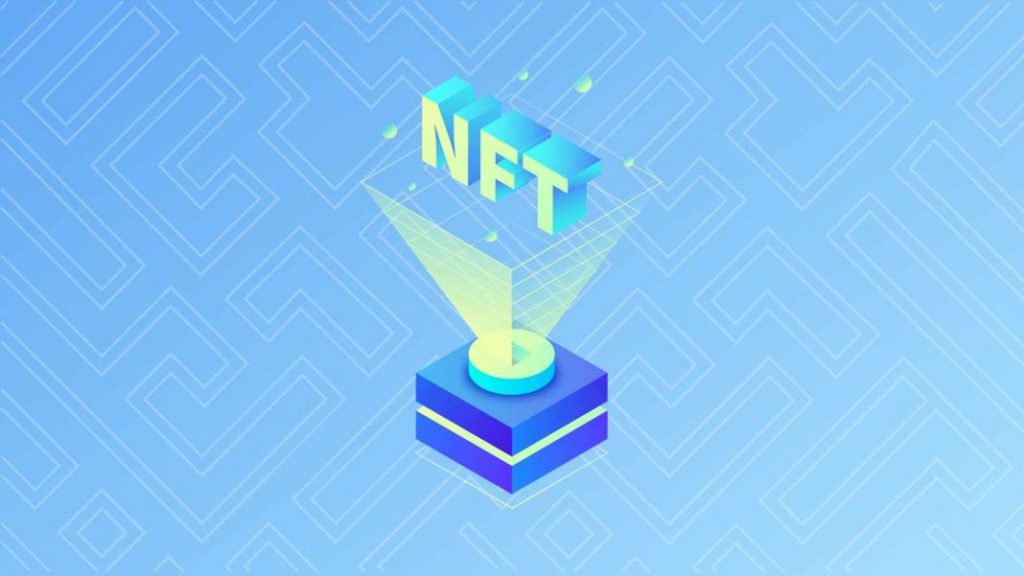
Commercial and residential properties can be tokenized with a representation and value stored on the blockchain. These NFTs can have specified data encrypted within the token, such as with any specified contract agreements encoded, viewable, and transparent for all buyers. A buyer can sign a secure, digital signature within seconds that verifies their identity, in possession of sufficient funds, and agreement before immutably transferring ownership of the asset from wallet address to another.
Tokenized assets can also be split, should the seller wish, allowing for more than one person to invest in a property, with clear transparency of ownership rights. NFTs make it easier for shared-ownership contracts to be created, or for a parent wanting to financially help their children purchase their first house.
Blockchain is a global technology, accessible to anyone, anywhere in the world with an internet connection. Tokenizing real estate on the blockchain can save weeks or months worth of time purchasing a property abroad. Blockchain doesn’t discriminate, making it easier for anyone to purchase real estate from anywhere in the world, with legal ownership rights and financial transfers occurring in minutes.
With the growing decentralized finance ecosystem, it is possible to create a wallet for a place as a store of wealth without any KYC sign-up processes. These services are invaluable to refugees, immigrants, or local citizens who don’t have sufficient papers for identification. Blockchain technology offers the opportunity for people to securely save some wealth and purchase property locally or abroad, and the ability to take that wealth with them across borders.
Mortgages on the Blockchain
Decentralized lending platform Aave has teamed up with RealT, one of the first blockchain-real estate companies to tokenize mortgages on the blockchain. It is now possible to invest and receive mortgage payments on the blockchain, straight into your wallet as stablecoins or through the RealT token.
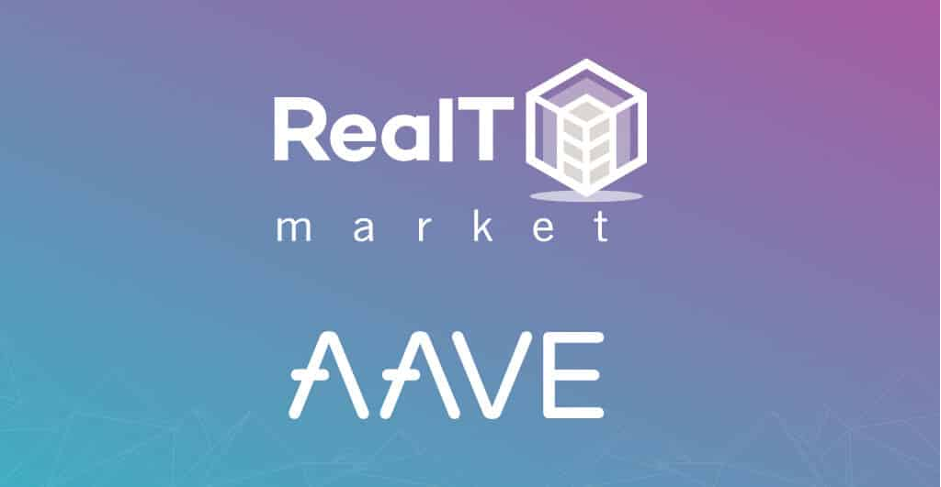
This allows investors to own a part of a property without the legal and regulatory burden of full ownership. What’s more, these mortgage tokens could be traded just like any other digital asset on cryptocurrency exchanges and decentralized marketplaces such as Uniswap.
Using mortgages as collateral on the blockchain makes it easy to change investment strategies, allocate liquidity, and receive dividends in a trustless, open manner without the need for third-party involvement.
By moving mortgages onto the blockchain, many over-complicated processes could be optimized into a frictionless, streamlined system that is transparent and tamper-proof, with fewer delays.

According to a report published by PWC on blockchain for mortgages, the UK Government’s Chief Scientific Adviser stated that blockchain could “help governments to collect taxes, deliver benefits, issue passports, record land registries…and generally ensure the integrity of…records and services.”
Blockchain in the Energy Industry
The rising number of “smart houses” – houses that rely on artificial intelligence and robotic functionalities are pushing architects to rethink how we live. The use of blockchain in the energy industry is transforming the way housing is designed, allowing smart devices to interact with each other within the home via the blockchain to optimize modern living.
Blockchain-based smart meters can monitor energy consumption in real-time, allowing users to choose how much energy they consume as prices fluctuate, removing a great deal of admin and paperwork from the equation, saving time and money for the consumer and the supplier.
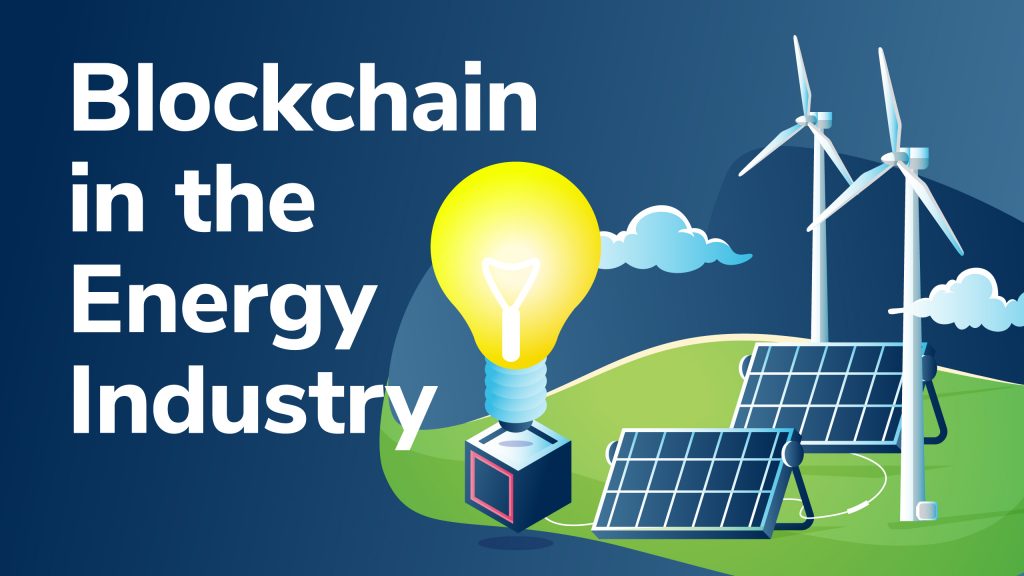
With the use of blockchain in the home, peer-to-peer energy markets could flourish, allowing for a more equitable and sustainable future for the energy industry while laying the foundations for sustainable energy innovations. We’ve previously written about blockchain in the energy sector and potential use cases.
The use of blockchain in house design and energy consumption can change how we view property, both from a real estate market perspective and in terms of how we spend much of our time. We could soon see houses designed with built-in-cryptocurrency mining facilities, drawing from renewable energy sources shared throughout a community of smart homes.
More Smart Contracts
Smart contracts serve many useful functions for blockchain in the real estate industry. From contract agreements between tenant and landlord, energy companies, and smart homes, to real estate agents and contractors.
Letting agents could soon offer a completely holistic package, with specifications for different levels of home energy usage for different sized families, maximizing savings costs for both tenants and landlords.
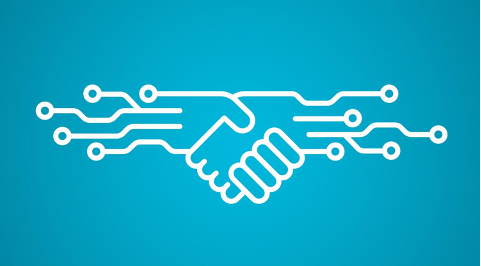
Another administrative slog is the acquisition and verification of identification documents of prospective tenants. Blockchain technology offers the perfect platform for a verifiable digital identity stored on the chain. The referencing process for tenants and landlords would be much quicker and hassle-free; what currently takes a 5 to 7-day turnaround, can be achieved in minutes.
Maintenance
Current systems for rented property maintenance are often unreliable for the tenant, the contractor, and the letting agent. By introducing blockchain-based systems into these processes, communication and coordination between all parties can be optimized, so that problems are fixed quickly and efficiently.
The blockchain adds a layer of accountability that is often lacking in real estate letting companies and contractors. If tenants, landlords, letting agents, and external contractors are all held to account by an immutable distributed ledger, the entire process becomes much more transparent, fair, and cost-effective.
Use Cases
Several projects have already implemented blockchain in the real estate industry, gaining first-mover advantages in this rapidly evolving sector. Below we have explained some of the current most popular platforms.
Shelter Zoom
ShelterZoom, based in New York, is the first real estate technology startup to incorporate blockchain technology within the industry’s infrastructure. The ShelterZoom website, widget, and mobile app offers a full end-to-end service for consumers to buy and sell their real estate in a super-easy, transparent, and secure format, incomparable to the legacy real estate industry. The platform is available to listing agents, brokers, and sellers parties, in addition to buyers and buyers’ agents/services. Available with Docuwalk, a blockchain-based platform that transforms documents and contracts into immutable, interoperable tokenized assets on the blockchain. Docuwalk streamlines the real estate admin process offering an all-in-one solution from contract creation to negotiation and signing.
Propy
Backed by Silicon Valley giants and the National Association of Realtors, Propy is a successful start-up whose mission is to revolutionize the real estate industry with the integration of blockchain technology.

Propy store all documents, records, and contracts on the blockchain, the most secure form of data storage. Testimonials on the website claim introducing Propy has saved brokers and agents up to 10 hours per week per listing.
Propy is another example of how successful integration of blockchain in the real estate industry can be and presents a model future letting and estate agents must adapt to, to not become irrelevant, as the technology reputably removes the ‘middlemen’ and third parties between exchanges and transactions, thereby additionally reducing the costs involved.
Atlant.io
Another way of investing in real estate via the blockchain is through a trading exchange. Atlant.io offers its exchange through the UVAS trading app, which includes the opportunity to trade tokenized real estate assets, private equity, unlisted commodities, and otc derivatives among other assets.
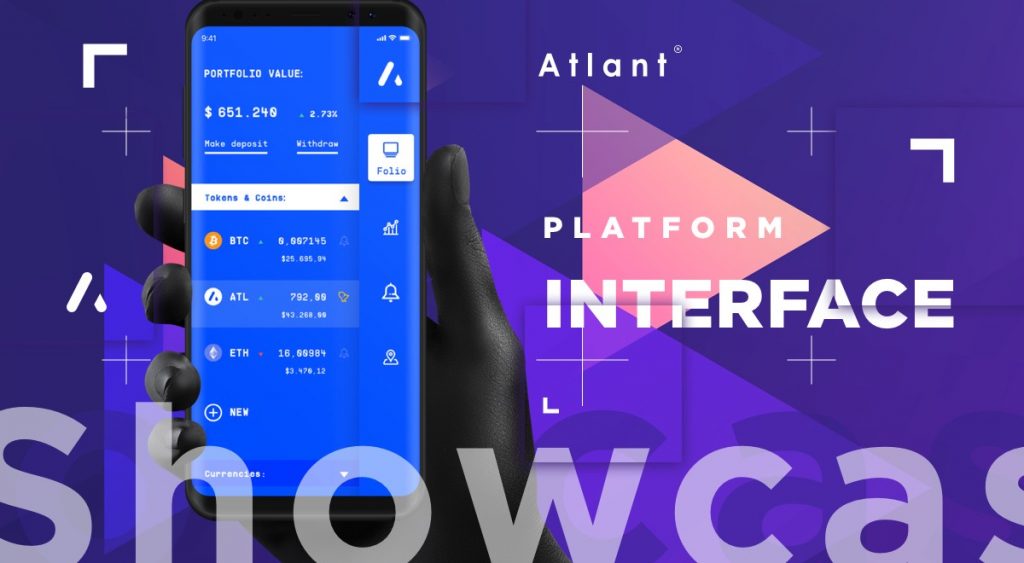
Blockchain in the Real Estate Industry Conclusion
The use of blockchain in the real estate industry could radically improve the way homes and property are built, bought, and sold. The implications of this breakthrough could also have an effect on the construction industry as the use of blockchain in supply chain management continues to rise.
Just as we see the fashion industry and healthcare sector embrace blockchain technology, the real estate industry is replacing outdated infrastructure with smart contracts and tokenized assets to bootstrap an evolving marketplace.
Blockchain brings flexibility and opportunity to an industry that is impeded by red tape, inefficient third-party communications, and market volatility. Housing applications on the blockchain will make it faster and easier to access all records needed to get a roof over people’s heads, from state-funded housing to private islands.
However, in order to implement the correct blockchain solutions in the real estate industry, you first need to have a solid understanding of blockchain technology. Ivan on Tech Academy is the easiest way to guarantee that you understand the possibilities and potential of integrating blockchain solutions in your industry. Take a peek at the countless blockchain and cryptocurrency courses today!
